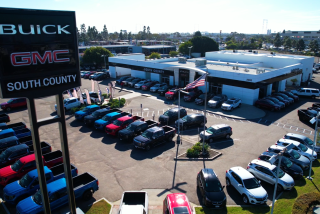Car Sales May Skid if Gulf Erupts--Experts
- Share via
DETROIT — Analysts and business executives Thursday said they foresee a steep, sudden falloff in sales of cars and other big-ticket items if war breaks out in the Middle East.
Already this week, nervous dealers have quit ordering new cars as the Tuesday deadline for military action nears, Ford Motor Co. President Philip E. Benton said.
Ford expects a “precipitous” decline in sales if shooting starts--a consumer response that wouldn’t take long to translate into more plant closings and layoffs, Benton said.
But Benton, interviewed at the Detroit auto show, stressed that sales could recover quickly as the war progressed and U.S. military prospects became clearer. And he said nobody really has a good handle on what will happen in the marketplace if war erupts in the Middle East.
Few business executives have been willing to speculate in detail about the immediate impact of war on U.S. commercial activity. But Ford’s scenario and the retrenchment by dealers are consistent with usual barometers of consumer confidence, according to Richard T. Curtin, a University of Michigan researcher.
Curtin, director of the university’s respected consumer confidence surveys, said uncertainty is building toward a peak that would be reached in the opening hours or days of war. “That leads to greater hesitancy at this particular moment,” he said.
That uncertainty could subside, he said, in seven to 10 days, as more information about the war--widely expected to last just a few weeks--became available. But a prolonged war or a stalemate “will certainly cause the consumer to significantly reevaluate his expectations.”
Curtin’s Institute for Social Research has already recorded a steep decline in consumer confidence since Iraq’s Aug. 2 invasion of Kuwait. Consumer reticence played a major role in driving the nation into a recession that is thought to have started in the fourth quarter of 1990.
The close link between the Middle East crisis and gasoline prices means that the prospect of war has particular relevance for would-be car buyers, Curtin said. But the reluctance to spend “will likely hold true for most major purchases,” he added.
Benton said dealer orders for new cars have “gotten very soft” in the last week, as public attention focused on the meeting between top U.S. and Iraqi envoys that ended in failure Wednesday.
“If shooting starts, we expect that dealer orders and customer shopping for cars will fall very dramatically,” Benton said. “When will they come back? I wish I could say. It depends on how quickly it is resolved.”
So far, the picture is mixed. A General Motors Corp. spokesman said the company had noticed no new weakness beyond the poor sales rate that has prevailed since late November. But a Chrysler Corp. official confirmed that “traffic has deteriorated the last few days.”
Several dealers contacted at random reported no sudden falloff in sales this week. At Team Chevrolet in Pasadena, sales manager Bob Oley said: “That’s all an attitude. People are still buying cars. You have to work harder, but the sales are still there.”
At Canyon Honda in Anaheim Hills, owner Bill Reutemann said: “In the last few days, with the news and the stock markets going down, there’s been a lot of apprehension. But we sold four cars yesterday, and that’s about on target.”
It was the haziness of the outlook that prompted Ford’s board of directors Thursday to declare its regular quarterly dividend of 75 cents per share, surprising some analysts who expected Ford to cut the dividend by half.
“It was the board’s judgment that the outlook is insufficiently clear to take an action as dramatic as cutting the dividend,” said Benton, referring to industry forecasts that today’s bleak outlook will give way to recovery later in 1991.
The financial condition of the three U.S.-based auto companies has weakened significantly in recent weeks. They are expected to report fourth-quarter losses approaching a total of $2 billion. Ford could save $700 million a year by halving its payout to shareholders.
Times researcher Amy Harmon in Detroit also contributed to this story.






